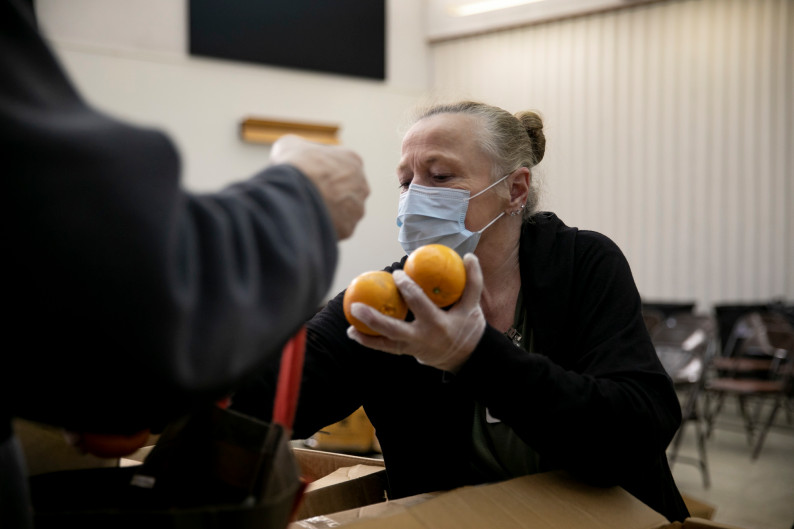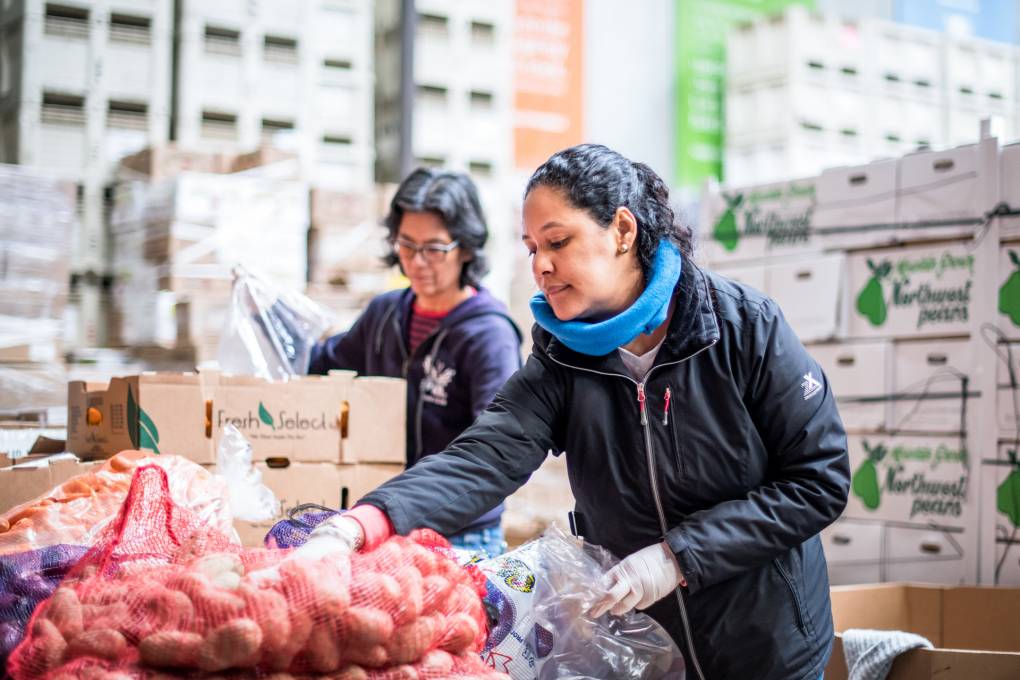But even as the need for support rises, visitation and activity programs have been cut by shelter-in-place orders. Brendon Coates, 37, a volunteer with Little Brothers-Friends of the Elderly-San Francisco, can’t see the senior he has been visiting twice a month since 2018. Usually, when Coates stops by, they talk about old Hollywood movies and swap sugar-free chocolates. Coates has been calling regularly and checking in, but said he does sometimes worry about how his older friend is doing, isolated and with no family nearby.
Phone lines and DIY volunteer groups that have sprung up to help Bay Area seniors have also seen a flood of calls. Paige Wheeler Fleury, who helped found the volunteer-led Oakland at Risk website, which connects healthy young people in Alameda County with seniors and other high-risk community members who need help with groceries, supplies or phone check-ins, described “heartbreaking” situations: a 94-year-old disabled woman with no friends or family members who doesn’t have money for food; a blind man in his late 70s who has no microwave, refrigerator or stove and relied on a now-closed senior center for daily meals, with no money until April 1.
“He called us about three times and said, ‘I’m hungry and I have no one to help me.’ It was pretty emotional when I spoke to him,” she said. The group was able to send out an emergency delivery of food, but Wheeler Fleury said she is short on sign-ups for volunteers in his area — Oakland’s San Antonio neighborhood — who could continue to help get him groceries.
Dr. Patrick Arbore, an expert in elderly suicide prevention and isolation and founder of the San Francisco-based Friendship Line, a crisis intervention and support phone hotline for seniors and people with disabilities, said the line has seen an uptick in calls as seniors navigate the loneliness of coronavirus. He recommends people who live in buildings with seniors slip the (800) 971-0016 phone number of the Friendship Line — which serves people across California — under their doors.
“It can be a life-sustaining link for them,” he says. “It’s a very stressful time, and when I talk to older people over a period of six hours as I did today and I hear them, I hear the fear. They will say, ‘I’m scared.’ And their routines are just totally altered. And that’s the thing that I can hear is that they’re alone.”
Erica Hellerstein is a reporter with the Mercury News. This article is part of The California Divide, a collaboration among newsrooms examining income inequity and economic survival in California.

